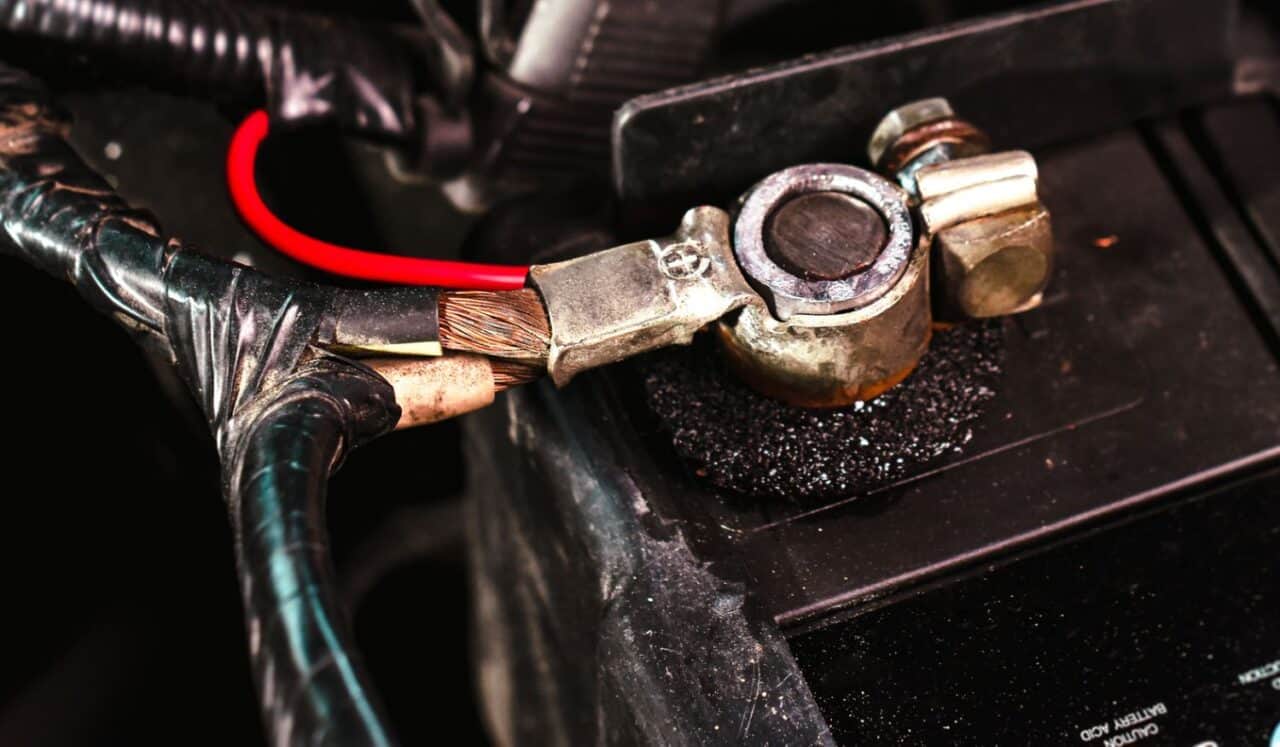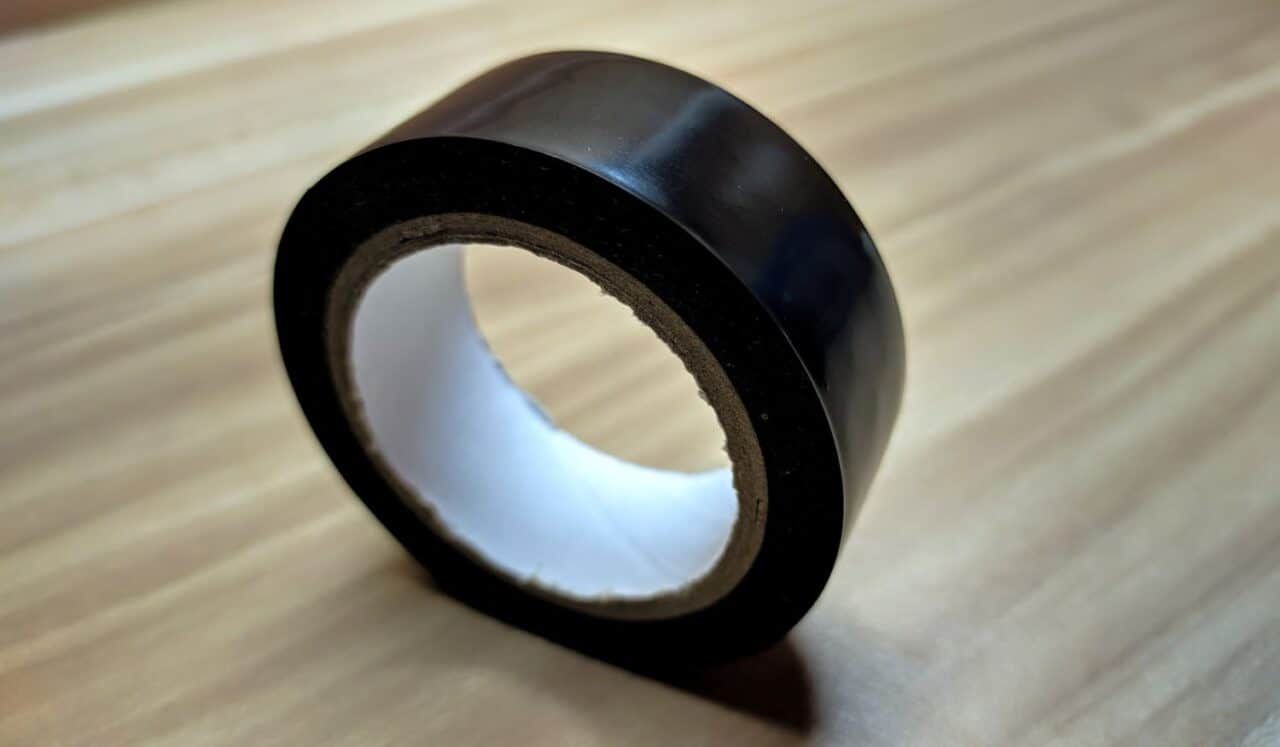Can You Put Electrical Tape On A Car Battery Terminal?
The electrical systems in your car are a complex network of parts and components that require regular maintenance to keep your vehicle running smoothly. An important part that needs frequent maintenance is the car battery. But is electrical tape enough to cover it?

You can use electrical tape on a car battery. Covering the car battery terminals with electrical tape prevents them from making contact with metal objects which could cause a short circuit or a fire. However, the tape can come off once it loses its strength, so it’s not reliable for long-term use.
Who doesn’t love taping over something and calling it a day? Let’s take a look at the benefits and drawbacks of using electrical tape for car battery maintenance.
What is the Purpose of Taping a Car Battery?
Taping car battery terminals prevents them from coming into contact with metal objects which can cause a short circuit or a fire in certain cases.
It also helps to keep the terminals clean and free from corrosion.
Is It Safe to Use Electrical Tape on a Battery Terminal?
It is safe to use electrical tape to cover battery terminals. The effectiveness of the tape will depend on how you apply it. However, the tape can become brittle and tear or come off once it loses its strength.
How long electrical tape will last depends on the application and the conditions it’s exposed to.
Its lifespan can range from a few weeks to months or even years, but it’s not something you can rely on for long-term use.
There are a couple of electrical tape options to choose from depending on the problem you’re trying to solve. They include the following:
- Polyvinyl Chloride (PVC) tape: PVC tape (on Amazon) is one of the most widely used types of electrical tape available and is often seen on battery terminals due to its versatility. However, it’s important to keep in mind that PVC tape is susceptible to catching fire when exposed to high temperatures. Despite this, it’s known for its durability in the face of corrosion, abrasion, and extreme weather.
- Rubber electrical tape: Rubber electrical tape (on Amazon) is usually non-sticky, so you have to stretch and firmly wrap it around whatever you are trying to secure so that it sticks to itself through the elasticity of the backing.
- Mastic tape: Mastic tape (also on Amazon) is the soft, cushiony material in the middle layer of an electrical tape. It can have vinyl, rubber, or no backing, so you have lots of choices for your projects. This tape is popular amongst professional electricians because it sticks well and can be manipulated to fit into small or oddly shaped spaces.
When selecting an electrical tape, choose one suitable for the environment it will be exposed to.
Ensure that the tape can withstand the temperature levels in the engine. You can find information on the characteristics of each color on the manufacturers’ websites.
Additionally, apply several layers of the tape and stretch it while applying it to make the adhesive stronger.
Is Electrical Tape Waterproof?

If you’re looking to shield your terminals from getting wet, you should know that electrical tape is not waterproof.
People often use it to wrap around water pipes and hoses because it possesses a certain degree of water resistance and can tolerate some moisture.
Unfortunately, it can’t cope with large amounts of water and will lose its adhesive properties in humid conditions.
How to Know When It’s Time to Replace Your Battery Cables
Battery cables usually last anywhere between 50,000 to 100,000 miles.
The cables endure a lot of wear and tear due to frequent use, which makes them vulnerable to damage.
Some of the most frequent signs of bad or worn battery cables include:
- Visible damage to the cables
- Your car’s interior lighting dims
- Your engine cranks sluggishly
- Your engine stalls or doesn’t start
- You hear a clicking sound when you turn the key, but the engine won’t start
When a battery cable is damaged, you won’t be able to repair it. Replacing it is the only way to fix the issue you’re experiencing.
Testing with a voltage meter is a surefire way to find out if you need to replace battery cables. Damaged battery cables will make it nearly impossible to start your car.
Sometimes the issue may not be breakage or damage to the cables but corrosion that can lead to battery cables going bad.
The corrosion that forms on the cable acts as a barrier that prevents it from making good contact with the battery posts. Sometimes, you can quickly resolve the issues by scrubbing off the corrosion.
Having a professional inspect the battery cables is the best way to ensure the necessary repairs are done.
If the battery cables are faulty, your car may not be able to start, leading to a lot of instability.
Therefore, if you notice any issues with your vehicle’s starting, it is important to have a qualified mechanic replace the cables.
Safety Tips to Keep in Mind
Batteries are a potential hazard since they are large, contain corrosive acidic substances, and generate electricity.
Therefore, it’s crucial to observe proper safety measures when handling them. Here are a few safety tips to keep in mind:
- Ensure your work area is well ventilated.
- Avoid leaning over the battery while testing or boosting it.
- Keep the battery away from cigarettes, flames, sparks, and other ignition sources, as they may cause the battery to catch fire or even explode.
- Don’t attempt to use booster cables, modify post connections, or charge a battery if you have no proper instructions and training.
- If you contact the battery fluids directly, flush the affected area with water and call a physician immediately.
- Read your car and battery owner’s manuals for instructions and to ensure you follow safety guidelines.
- When dealing with batteries, it is important to use protective gear such as gloves, goggles, and a hard hat. The gloves and goggles shield from battery acid, and the hard hat protects you from the battery in case it drops or swings around.
- Don’t bring any metal objects into contact with batteries. This includes tools, hoist chains, or personal items such as jewelry, watches, and belts. Metal conducts electricity, and if you touch a metal object that’s in contact with a battery, you could be electrocuted.
- Don’t let either terminal simultaneously touch the same object (especially yourself). If both terminals are connected, electricity will flow through whatever is in contact with them.
Related Reading on Car Batteries:
- Are AAA Batteries Good?
- Car Battery Maintenance: Is Grease Needed for the Terminals?
- Car Battery Maintenance: Can You Use Electrical Tape?
- 6 Steps To Safely Clean Up Car Battery Acid
- Can A Short Circuit Damage A Car Battery? And How To Prevent It
- Do You Need A Costco Membership To Buy A Car Battery?
- 5 Steps To Safely Clean A Corroded Car Battery
- Are Car Battery Indicators Reliable?
